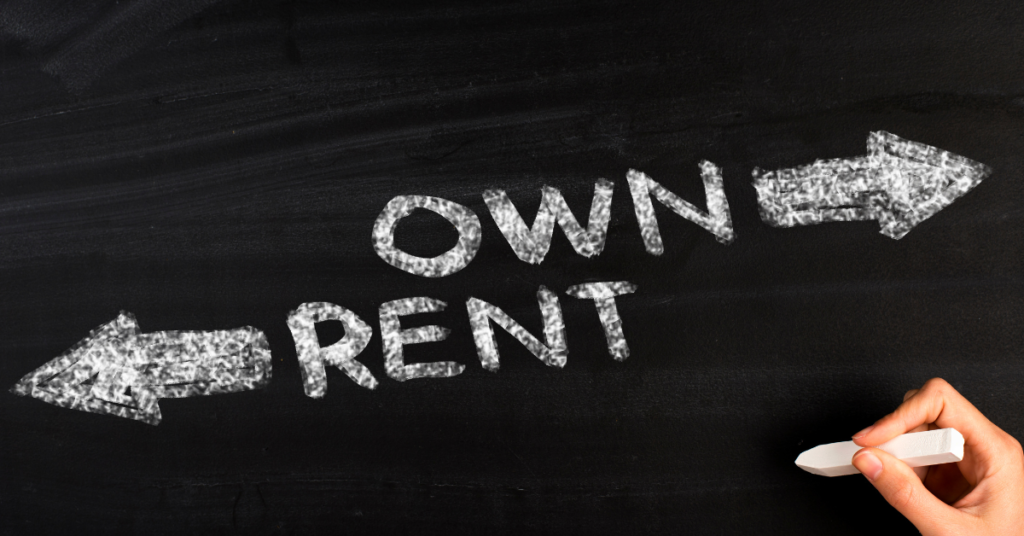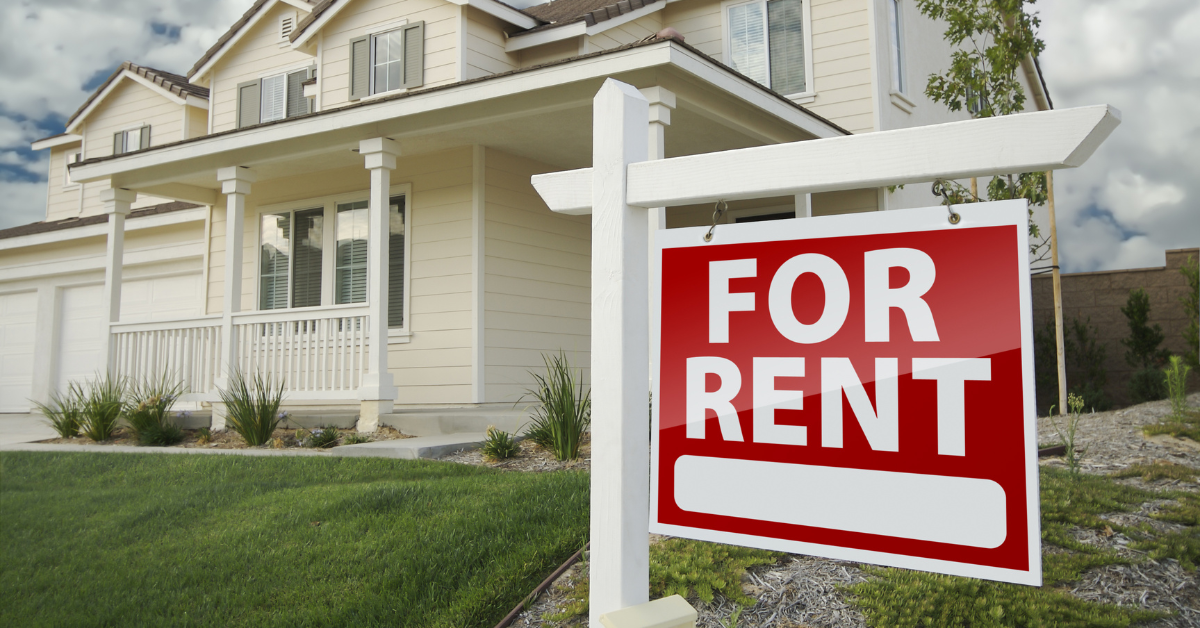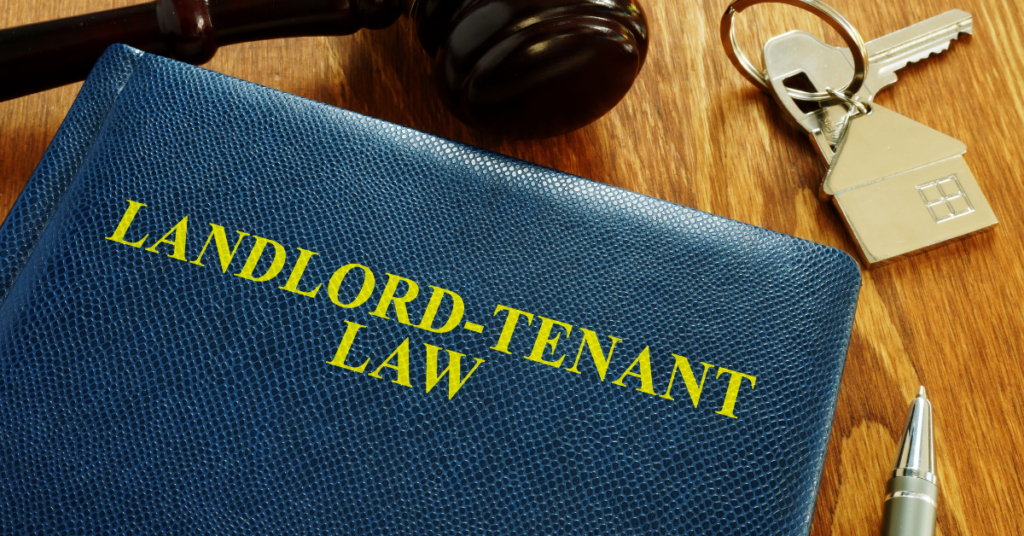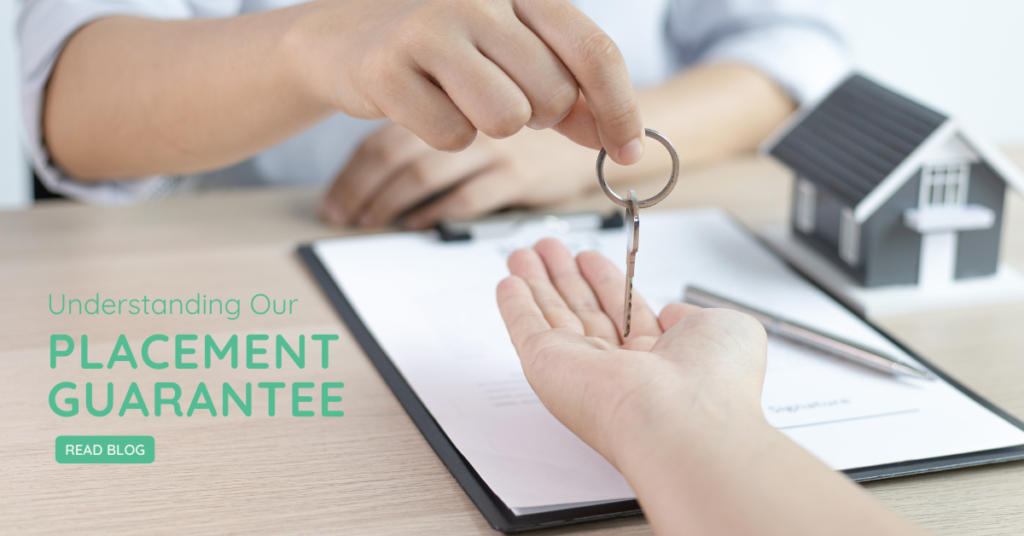The Pros and Cons of Renting vs. Owning a Home
Reading Time: 7 minutesChoosing between renting vs owning a home is a pivotal choice that significantly shapes one’s lifestyle and financial trajectory. This comprehensive guide aims to dissect the pros and cons of both options. We’ll provide prospective homebuyers, individuals in the early stages of their careers, young families, and those exploring housing choices with the information they need…

Choosing between renting vs owning a home is a pivotal choice that significantly shapes one’s lifestyle and financial trajectory. This comprehensive guide aims to dissect the pros and cons of both options. We’ll provide prospective homebuyers, individuals in the early stages of their careers, young families, and those exploring housing choices with the information they need to make informed decisions.
Table of Contents
Defining Renting and Owning
Before delving into the intricacies of each housing option, it’s essential to establish a clear understanding of what renting and owning a home entail. Renting involves leasing a property from a landlord, providing a level of flexibility and mobility not typically associated with homeownership. Conversely, owning a home means taking on the responsibilities and benefits of property ownership, including the ability to build equity over time.
Renting a Home

Evaluating monthly rental expenses against one’s budget is a critical aspect of financial planning for renters. Here’s a breakdown of these two points:
Analysis of Monthly Costs
Renters should carefully analyze their monthly rental expenses to align with their budgetary constraints. This involves not only considering the base rent but also factoring in additional costs such as utilities (water, electricity, gas), internet, cable TV, renter’s insurance, parking fees (if applicable), and any other recurring expenses associated with the rental property.
Renters need to assess whether these combined expenses fit comfortably within their monthly income and other financial obligations. Creating a detailed budget can help renters track their expenses and ensure they’re not overspending on housing.
Savings Potential
Renting can offer potential savings compared to homeownership in several ways. Firstly, renters typically do not have to deal with property maintenance and repair expenses, which can be significant for homeowners. Secondly, renting may provide more flexibility regarding location, allowing renters to live in areas where homeownership might be unaffordable or impractical.
Additionally, renting may require a lower upfront financial commitment compared to purchasing a home, as renters typically only need to pay a security deposit and possibly the first and last month’s rent. This can free up more disposable income, providing opportunities for saving or investing in other financial goals such as retirement accounts, emergency funds, or education funds.
Pros and Cons of Renting
Advantages:
- Flexibility and Mobility: Renting offers the freedom to move without the commitment of selling a property.
- Low Maintenance and Repairs: Tenants are typically not responsible for major maintenance or repair costs, relieving them of financial burdens.
Disadvantages:
- Lack of Equity: Unlike homeowners, renters do not build equity through property ownership.
- Limited Personalization: Renters may face restrictions on personalizing their living spaces according to their preferences.
Owning a Home

Homeownership comes with its own set of financial considerations and potential benefits. Here’s an analysis of the points you’ve mentioned:
Mortgage and Property Taxes
One of the primary financial commitments associated with owning a home is the mortgage payment, which typically includes principal and interest. Homebuyers need to carefully evaluate their budget and financial situation to ensure they can comfortably afford their mortgage payments over the long term. Additionally, property taxes are another ongoing expense that homeowners must consider.
These taxes vary depending on the location and value of the property and can have a significant impact on homeowners’ monthly expenses. Homeowners need to budget for these expenses and be prepared for potential increases in property taxes over time.
Long-Term Investment
Homeownership is often regarded as a long-term investment that can contribute to financial stability and wealth accumulation over time. Unlike renting, where monthly payments provide no equity or ownership stake in the property, homeowners build equity in their homes with each mortgage payment.
This equity can serve as a source of wealth and financial security, providing homeowners with the option to borrow against it through home equity loans or lines of credit or potentially sell the property at a profit in the future. Additionally, homeownership can offer stability and predictability in housing costs, as mortgage payments on fixed-rate loans remain constant while rents may increase over time.
Pros and Cons of Owning
Advantages:
- Building Equity: Homeownership allows individuals to accumulate wealth over time through property appreciation.
- Stability and Control: Homeowners have a sense of stability and control over their living space, fostering a connection to the community.
Disadvantages:
- Financial Responsibilities: Homeownership comes with financial responsibilities such as mortgage payments and property taxes.
- Maintenance Costs: Property owners must consider ongoing maintenance expenses and unforeseen costs.
Lifestyle Choices
Lifestyle choices play a significant role in the decision between renting and owning a home. Here’s an analysis of the lifestyle considerations associated with each option:
1. Renting
Renting is well-suited for individuals who have transient lifestyles or frequently relocate due to career changes, education pursuits, or personal reasons. Since rental agreements typically have shorter terms compared to the commitment of a mortgage, renters have the flexibility to move more easily without being tied down to a specific property.
Renters enjoy the flexibility to relocate to different locations without the complexities and potential financial implications of selling a property. This flexibility can be advantageous for individuals who prioritize mobility or need to adapt to changing circumstances without being constrained by homeownership responsibilities.
2. Owning
Homeownership offers the opportunity to establish roots in a community and become more deeply involved in local activities, schools, and social networks. Owning a home can foster a sense of belonging and connection to a particular neighborhood or area, allowing homeowners to contribute to its growth and development.
For families, homeownership can provide a sense of stability and security, offering a permanent place to call home. Owning a home can create a stable environment for children to grow up in, with the potential to build long-lasting memories and relationships within the community. Additionally, owning a home can provide peace of mind for parents, knowing that they have a secure asset to pass down to future generations.
Homeownership Benefits and Rental Advantages

Let’s examine the benefits of homeownership and the advantages of renting:
Homeownership Benefits
One of the significant advantages of homeownership is the potential for wealth accumulation through property appreciation. Over time, real estate properties tend to appreciate, allowing homeowners to build equity. This equity can serve as a valuable asset and contribute to long-term financial security and wealth generation.
Homeownership provides individuals with the freedom to customize their living spaces according to their preferences and needs. Unlike renters who may be limited in their ability to make changes to their living environment, homeowners can undertake renovations, upgrades, and alterations to their property to create a personalized and comfortable living space.
Rental Advantage
Renters enjoy minimal financial commitments compared to homeowners. While homeowners are responsible for mortgage payments, property taxes, insurance, maintenance, and repairs, renters typically have a fixed monthly rent payment and fewer financial obligations. This can provide renters with greater flexibility in managing their finances. It can also free up funds for other purposes such as savings, investments, or discretionary spending.
Renting offers flexibility for individuals to adapt to changing circumstances by easily moving to different living spaces. Whether due to job changes, lifestyle preferences, or financial considerations, renters can relocate without the complexities and financial implications associated with selling a property. This flexibility allows renters to explore different neighborhoods, cities, or even countries without being tied down to a specific location.
Equity Building and Maintenance Costs for Homeownership

Let’s delve into the aspects of equity building and maintenance costs in homeownership:
Equity Building
Homeownership is widely recognized as a crucial avenue for long-term wealth accumulation. As homeowners make mortgage payments over time, they gradually build equity in their property. Equity represents the difference between the property’s market value and the remaining balance on the mortgage. Over the years, as the property value appreciates and the mortgage balance decreases, homeowners’ equity grows. This can contribute to their overall net worth.
Property resale also presents homeowners with the potential to generate profits, particularly in appreciating real estate markets. When homeowners decide to sell their property, they may be able to realize a profit if the sale price exceeds the initial purchase price and any associated selling costs. This profit can be reinvested into another property, used to fund other financial goals or serve as a source of retirement income.
Maintenance Costs
Homeowners should carefully analyze and budget for long-term maintenance expenses associated with homeownership. Regular maintenance tasks such as landscaping, HVAC system servicing, roof repairs, and plumbing upkeep are necessary to preserve the property’s value and prevent costly repairs down the line.
Planning for unexpected maintenance costs is crucial to ensure financial preparedness for unforeseen repairs. Despite diligent maintenance efforts, unexpected issues such as a burst pipe, roof leak, or electrical problem can arise, requiring immediate attention and potentially significant financial outlay. Homeowners should set aside funds in an emergency savings account or allocate a portion of their budget for unexpected maintenance expenses. This is to mitigate the impact on their finances and ensure they can address such issues promptly.
Homeownership offers the opportunity for long-term wealth accumulation through equity building and potential profits from property resale. However, homeowners must also be prepared to manage long-term maintenance expenses by carefully budgeting for regular upkeep and planning for unexpected repair costs to maintain the value and integrity of their property over time.
Conclusion
The decision between renting vs owning a home is multifaceted, requiring a thorough examination of lifestyle preferences, financial considerations, and long-term goals. For personalized advice tailored to individual situations, seeking the guidance of real estate professionals is encouraged.
Considering investing in rental property? Partner with Green Ocean Property Management for personalized guidance aligned with your lifestyle and preferences. Let’s explore your options together and discover the ideal housing solution for you.
Act now and make confident decisions with Green Ocean Property Management by your side!
A Guide to Massachusetts Tenant-Landlord Laws
Reading Time: 11 minutesNavigating the legal landscape of rental housing can be incredibly complex, especially for owners and managers of Massachusetts properties. State statutes, city ordinances, federal regulations, and case law precedents intertwine to create a web of obligations and best practices for both landlords and tenants to follow. Even experienced real estate investors can trip up over…
Top 5 Advantages of Starting your Renewals Early
Reading Time: 3 minutesThe goal of every property owner is to have a successful rental property. It is important that you have established tenants who pay their leases on time to keep the ball rolling. When you know that it is almost the end of their lease, you have a decision to make. Offering a renewal of your…
Understanding Our Placement Guarantee
Reading Time: 2 minutesGreen Ocean Property Management offers a unique Placement Guarantee to provide property owners peace of mind. This guarantee is a commitment that ensures a qualified tenant will be found for your property within a specified timeframe. If we fail to meet this promise, we will waive our leasing fee, a significant benefit for property owners…








